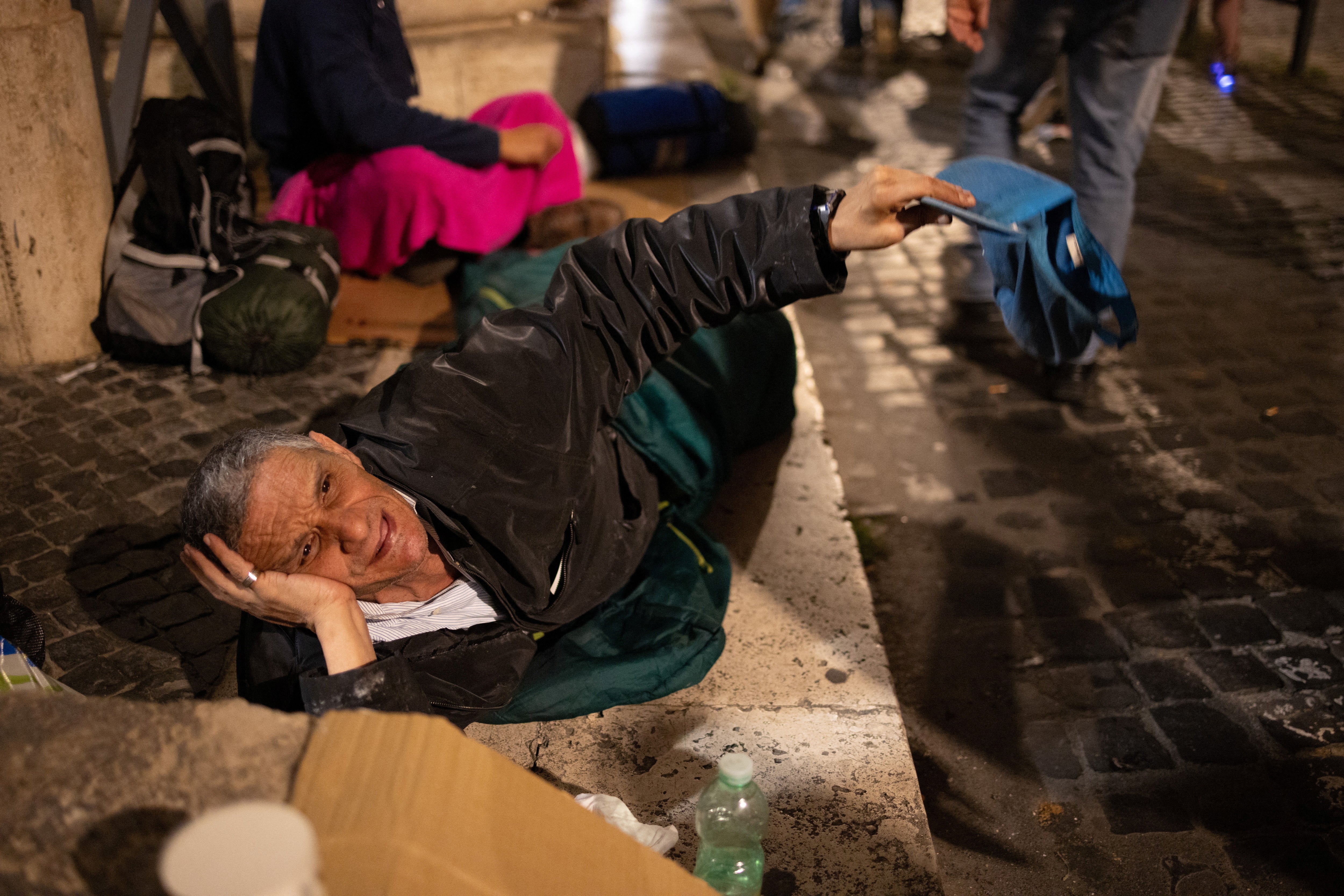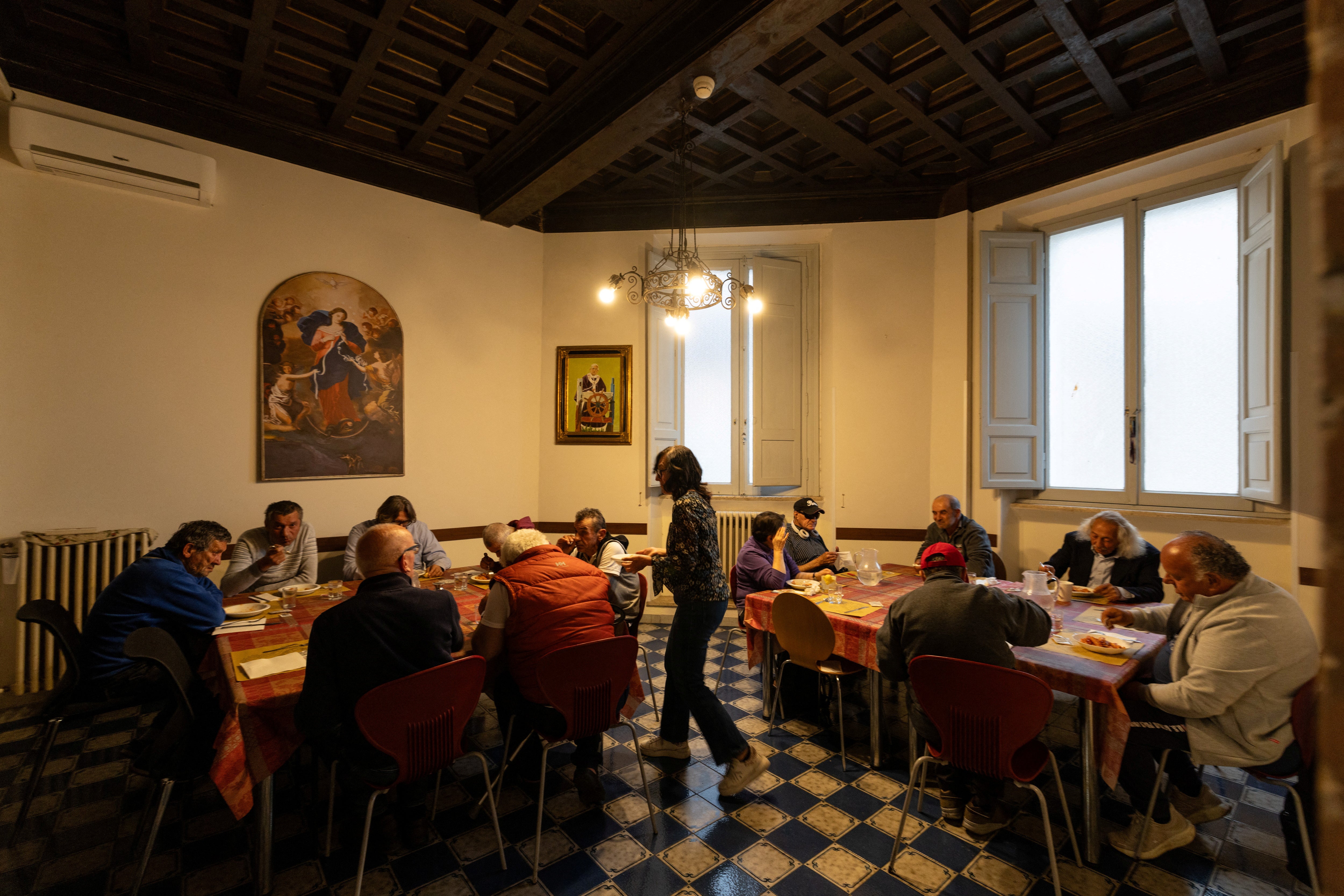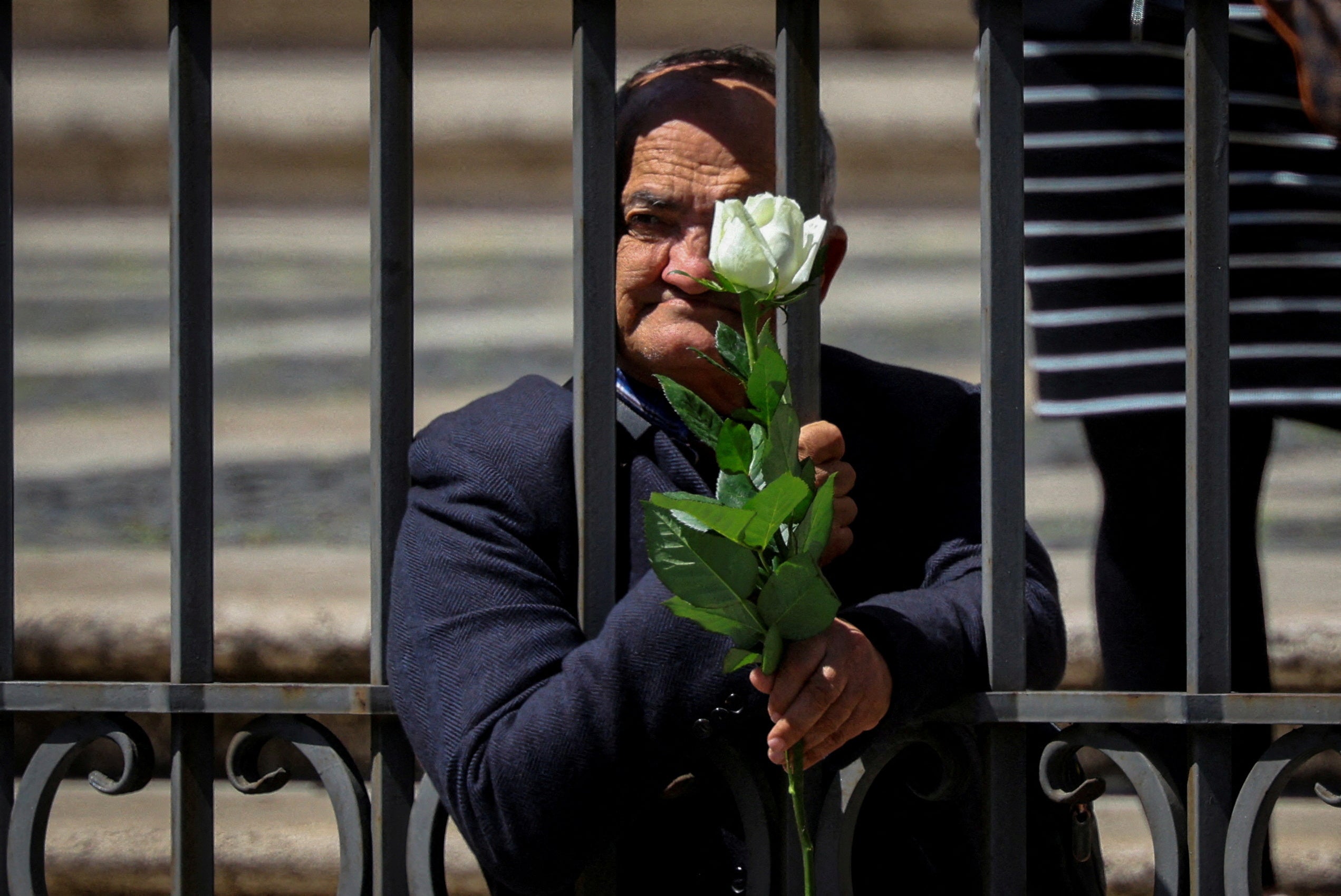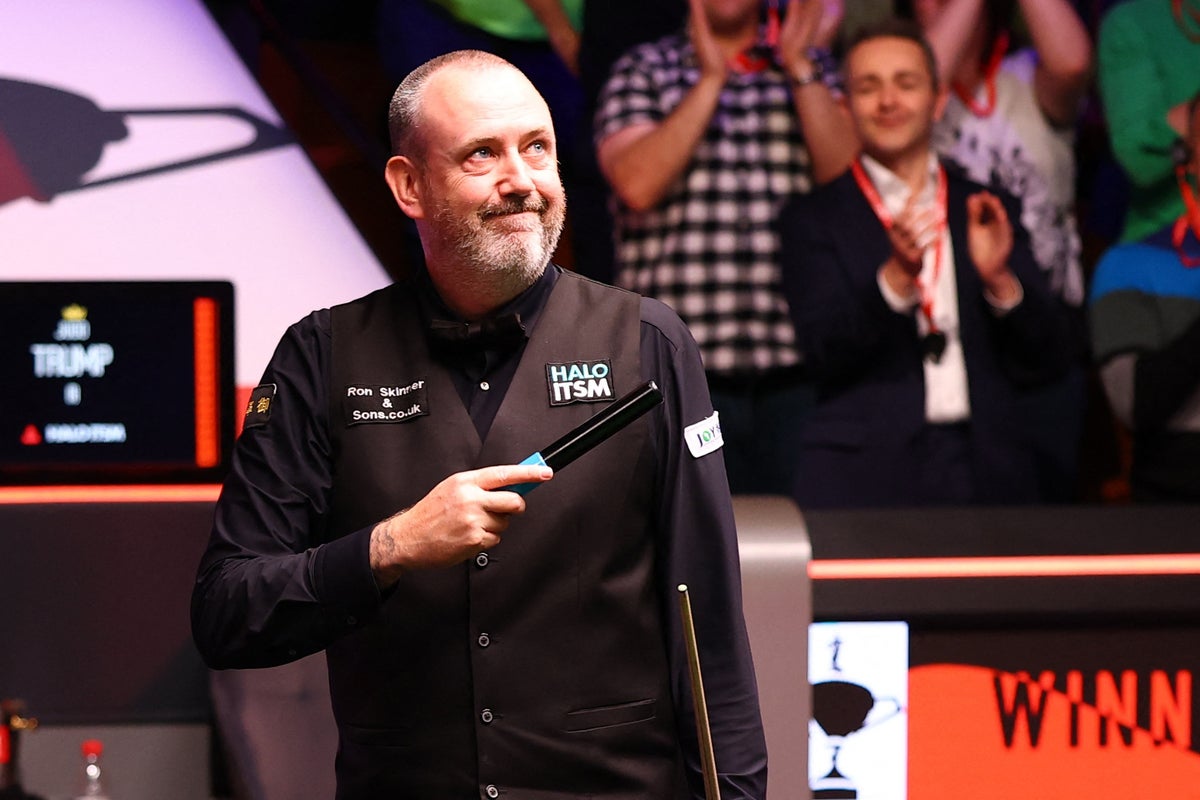ARTICLE AD BOX
The gleaming colonnade of St. Peter's Square provides a majestic backdrop as four men wait for a free dinner on a terrace in the heart of the Vatican, on a balmy April evening.
The prestigious location is the envy of Rome's finest hotels. But the 19th-century Palazzo Migliori is a homeless shelter, housed in a building the late Pope Francis dedicated to their care.
Francis, who died on April 21, shunned much of the pomp and privilege of the papacy and sought to make the Roman Catholic Church more inclusive and less judgmental.
Known as the "slum bishop" in his native Buenos Aires because of his frequent visits to shanty towns, Francis made concern for the poor a major focus. He also asked that they play a prominent role in his funeral.
After he became pope in 2013, more tents and sleeping bags appeared in the evenings in the long shadows of St. Peter's Square, as word of Francis' welcome to the homeless spread. Under his direction, the Vatican built new facilities like showers and a laundry to help them. Six years ago it gave the palazzo, once used by nuns, to the Sant'Egidio lay community, which supports those on society's margins.
"He has done so much for the poor. He met so many poor people, he opened the best building to give hospitality to all these who are on the street," said Antonino Siracusa, a former homeless man who works at the Sant'Egidio shelter. The shelter currently houses 38 men and seven women.

Siracusa was among a group of homeless, migrants, prisoners and transgender people waiting on the steps of the Basilica of St. Mary Major, Francis' chosen resting place far from the splendour of the Vatican, to greet the pope's coffin after the funeral on April 26. Each held a white rose.
"I was inside the gate with a flower in my hand, waiting for Pope Francis' coffin to enter," said Siracusa.
During his 12-year papacy, Francis invited huge groups of poor and homeless to eat with him - sometimes as many as 1,200 at a time. He asked that umbrellas forgotten by tourists in the Vatican museums be handed out to those on the streets. He had a Vatican post office turned into a health clinic for the poor, and distributed sleeping bags on his birthday.
"We're going to miss everything. He was a pope who was doing so many things," said Siracusa.
Savile Piro, who is homeless and sleeps on the streets of the Vatican, said the pope "always thought of us. He has always given to us. The showers that are there - he created them. The clinic - he created it. The shelter that's here - he created it. What more could you want?"

Piro was there when the pope surprised residents of the shelter with a visit.
"It was an experience that you can't explain with words. A blow to the heart... it left me breathless. When we were having breakfast, and then he came in, we were all open-mouthed."
Who will be the next pope?
With Francis' death, nearly all Vatican officials automatically lose their positions apart from those in a handful of offices. One of those who keeps his job is the head of charity, Cardinal Konrad Krajewski, a Pole appointed by Francis.
Krajewski is well known in Rome for having climbed down a manhole in 2019 to restore electricity to hundreds of homeless people living in an occupied building. The then Italian government did not approve.
Cardinals will start their conclave next week to pick a new head of the 1.4-billion-member Church. Among the leading contenders is Italian Cardinal Pietro Parolin, who served as the Vatican's number-two official for most of Francis' papacy.

Another is 67-year-old Cardinal Luis Antonio Tagle, who is from the Philippines and is often called the "Asian Francis" because of his similar commitment to social justice.
Spain's Cardinal Juan Jose Omella, 79, is in the running and has promoted care for the poor and a compassionate vision of Catholicism. Matteo Maria Zuppi, archbishop of Bologna in Italy, is known as a "street priest" who focuses on migrants and is also considered a possible candidate.
"My hope is that the next pope will follow the same path as Pope Francis. That he will be as approachable," said Siracusa.
"Many say that there will be a Black pope. Many say 'let's hope he's Italian'. I say, 'let's hope he's a good pope'. That's enough," said Piro.









 English (US) ·
English (US) ·